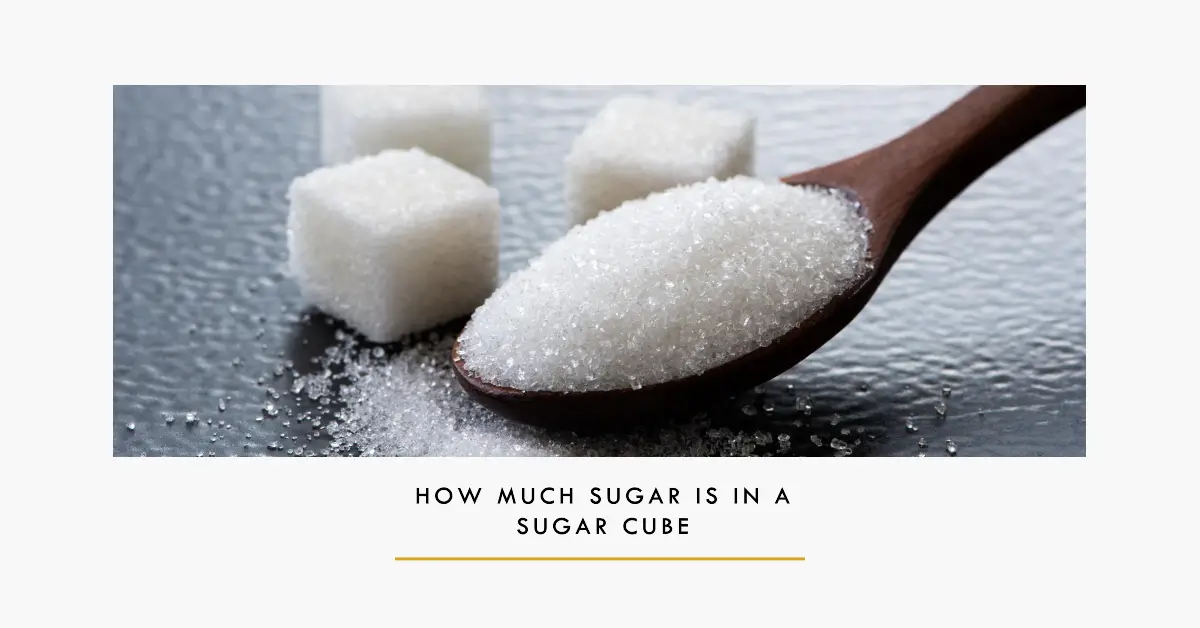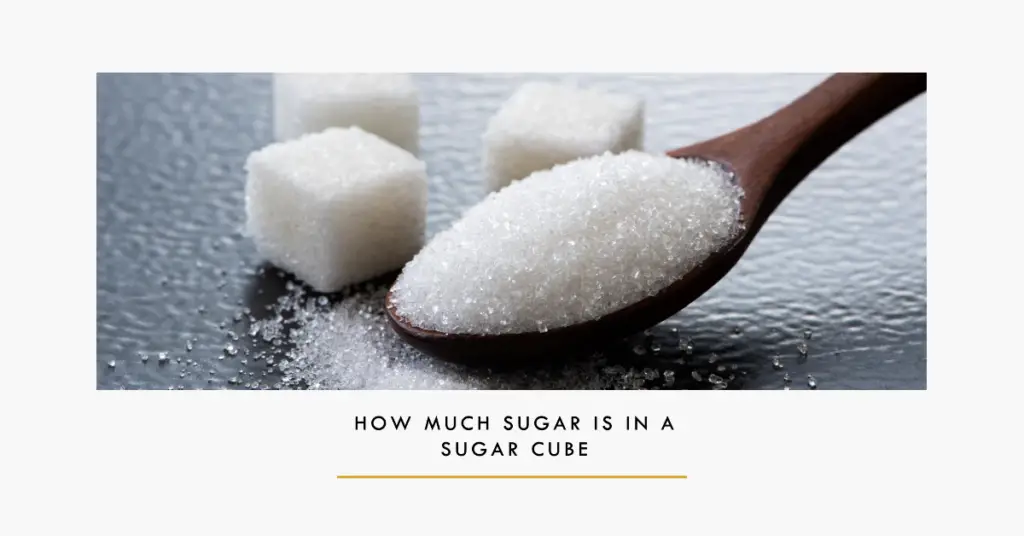
Introduction
Sugar cubes are a convenient way to sweeten beverages and desserts. But how much sugar is actually in a sugar cube?

In this article, we will discuss the sugar content of sugar cubes and how it compares to other types of sugar. We will also cover topics such as:
- The composition of sugar cubes
- The sugar content of different types of sugar
- How to reduce your sugar intake
The composition of sugar cubes
Sugar cubes are made from sucrose, which is a disaccharide composed of glucose and fructose. Sucrose is a white, crystalline powder that is soluble in water. It is the most common type of sugar used in food and beverages.
A single sugar cube typically contains around 4 grams of sugar, which is equivalent to 1 teaspoon of sugar. This is a significant amount of sugar, so it is important to be aware of the sugar content of sugar cubes if you are trying to watch your sugar intake.
The sugar content of different types of sugar
The sugar content of different types of sugar can vary. For example, a single teaspoon of granulated sugar contains around 4.2 grams of sugar, while a single teaspoon of brown sugar contains around 5.5 grams of sugar. Honey also contains a significant amount of sugar, with a single teaspoon containing around 6.7 grams of sugar.
How to reduce your sugar intake
If you are trying to reduce your sugar intake, there are a few things you can do. First, you can be mindful of the amount of sugar you are consuming. This means reading food labels carefully and choosing foods and beverages that are lower in sugar.
Second, you can try to substitute other sweeteners for sugar. There are a number of sugar substitutes available, such as stevia, monk fruit, and erythritol. These sweeteners are all lower in calories than sugar and do not have a significant impact on blood sugar levels.
Finally, you can try to reduce your intake of processed foods. Processed foods often contain high amounts of added sugar. Instead, focus on eating whole foods, such as fruits, vegetables, and whole grains.
Here are some tips for reducing your sugar intake:
- Eat whole fruits instead of sugary drinks and desserts. Fruits are naturally sweet and contain fiber, which can help to slow down the absorption of sugar into your bloodstream.
- Choose unsweetened beverages, such as water, unsweetened tea, and coffee. Sugary drinks are a major source of added sugar in the American diet.
- Limit your intake of processed foods. Processed foods often contain high amounts of added sugar. Instead, focus on eating whole foods, such as fruits, vegetables, and whole grains.
- Read food labels carefully. Be sure to check the ingredient list for added sugar.
- Use sugar substitutes sparingly. Sugar substitutes can be helpful for reducing your sugar intake, but they should not be used in excess.
Here are some of the potential health risks of consuming too much sugar:
- Weight gain. Sugar can contribute to weight gain by providing empty calories that do not fill you up.
- Type 2 diabetes. High sugar intake can increase your risk of developing type 2 diabetes.
- Heart disease. High sugar intake can increase your risk of heart disease by raising your blood sugar levels and triglyceride levels.
- Stroke. High sugar intake can increase your risk of stroke by raising your blood pressure and cholesterol levels.
- Gum disease. High sugar intake can increase your risk of gum disease by promoting the growth of bacteria in your mouth.
It is important to note that everyone’s sugar needs are different. Some people may be able to tolerate a higher intake of sugar than others without experiencing any negative health consequences. However, it is generally recommended that adults consume no more than 25 grams of added sugar per day.
Conclusion
Sugar cubes are a convenient way to sweeten beverages and desserts. However, they are also high in sugar. If you are trying to watch your sugar intake, it is important to be aware of the sugar content of sugar cubes and to make substitutions with lower-sugar alternatives.




